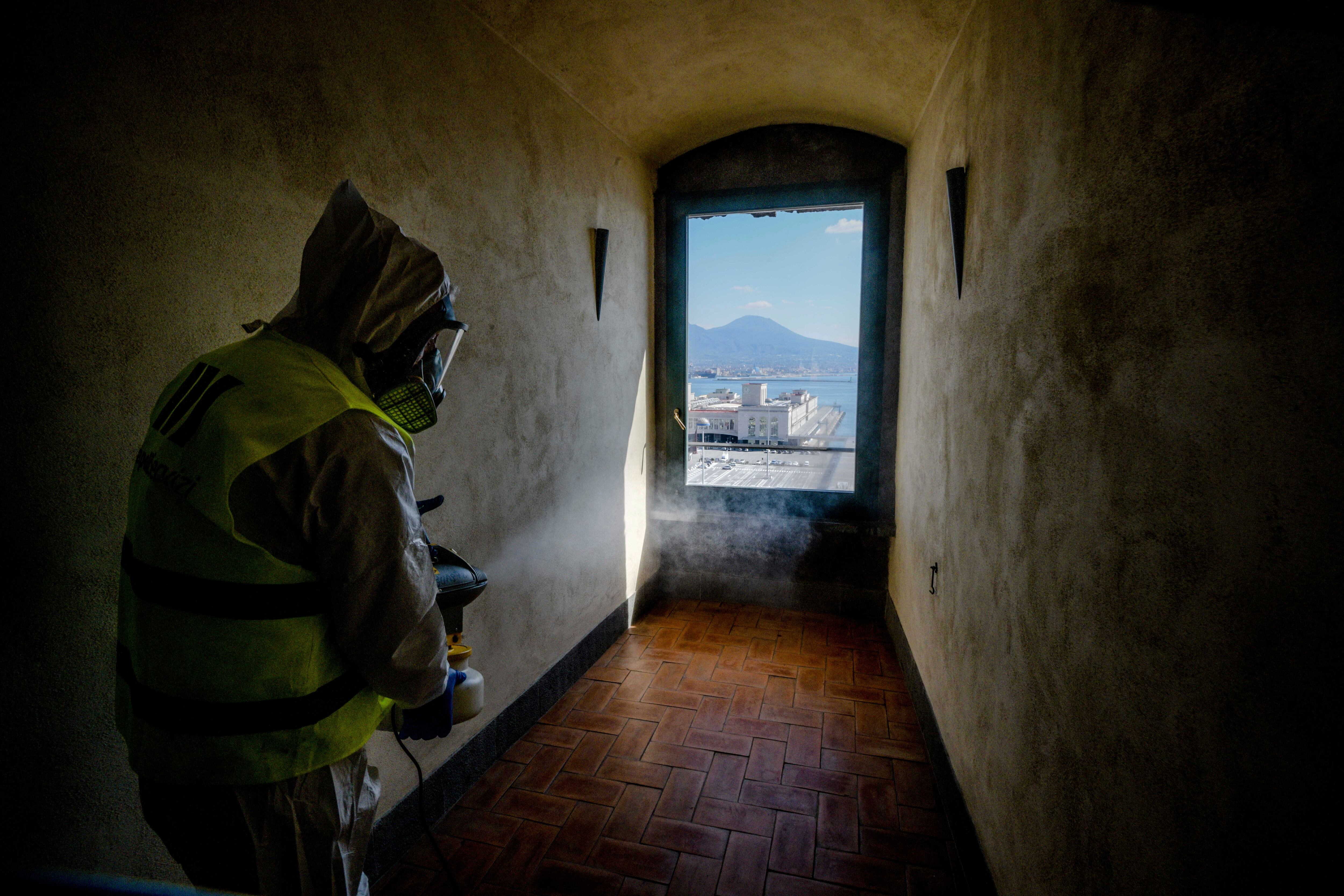It is a truism in military conflict that wars cannot be fought and won by half-measures. It appears that the war against the coronavirus in America is being left largely to state governors and city mayors to address. The key problem is that the virus does not respect state boundaries. More importantly, the threat exists for all our citizens, wherever they reside. In times of past threat, we have banded together as a people. There is no such country-wide unification yet evident, nor will there be if the past remains prologue as the Bard of Avon once famously mused.
Although initially slow-off-the-mark, Italy rightly came to treat the pandemic like a military conflict. The lockdown that was eventually applied was national. The prime minister mobilized police and military units —entering the fray with the understanding that they were fighting for the lives of their citizens. In other words, by eventually recognizing the danger and then taking country-wide action to meet that threat, the Italians are today on the path to defeating a merciless enemy. What about our country?
Early and consistent denials of any danger may have frozen the various involved U.S. government agencies into in-action in the critically important weeks leading up to the pandemic. Moreover, and because of the lost time, our citizens went blithely about their daily routines oblivious to the hazard presented by the coronavirus, even though the Centers for Disease Control and Central Intelligence Agency were fully aware of the threat and properly communicated their clearly valid concerns to superiors.
Let me be clear, the first principle of war is OBJECTIVE! First and foremost, a commander-in-chief must focus all the elements of national power to bring the war against this virus to a rapid and successful outcome: Hopefully achieving victory. Are we now defining victory as the loss of 100,000 to 250,000 fellow citizens before the battle has been fully joined? If so, I find myself left speechless. The objective should be to save all that we can.
I note that the secretary of defense was recently standing behind the president during a news conference in the White House. The only reason I can imagine him being there is because the Oval Office wishes to give the appearance that America is on a war-like footing. If we continue to liken the fight against the coronavirus to a war, let’s quickly examine a few from our history. President Johnson, a Democrat, attempted to fight a war in Vietnam by half measures in the vain attempt to keep his pet project “The Great Society” on the rails. He failed spectacularly, leading to his decision not to seek re-election. President Bush, a Republican, chose to engage in two wars simultaneously in Iraq and Afghanistan, and while seeking to maintain a sense of normalcy at home. Neither of these two more recent conflicts have enjoyed a successful outcome, and at enormous cost in terms of American lives lost and treasure expended. One wonders at our current dilemma.
It is nearly four weeks since I entered COVID-19 lockdown in Rome, Italy. Authorities here are now suggesting the possibility of a release-for-time-served on 12 April. That would be nice, but I have serious doubts. The high mortality rate, although decreasing a bit, is still elevated: Suggesting that self-isolation protocols will remain mandatory beyond mid-April.
Despite early missteps, the Italian Prime Minister has performed admirably in a very tough fight against an unyielding adversary. He mobilized the nation of 60,000,000 behind his leadership by taking bold necessary action to “flatten the curve.” It takes time: The virus won’t be rushed. Polling suggests that the Italian people have responded positively from all walks of life and political persuasions. I have seen it. The government-mandated protocols of self-isolation and social-distancing are slowly but surely working.
As of Friday morning, there were more than 115,000 cases of COVID-19 in Italy, with nearly 14,000 deaths, according to the World Health Organization.
At this writing there are nearly a quarter million reported cases of COVID-19 in the US, with nearly 5,000 deaths, according to WHO. The actual number is very likely higher. Only testing can provide accurate figures. Unfortunately, testing on the scale required is not yet possible. We need a nationally coordinated and unified response to this unprecedented threat. Despite the well-known negative impacts on the US economy, which are not insubstantial, the coronavirus should not be fought by half-measures: To continue to do so will have deadly consequences.
Robert Bruce Adolph is a former United Nations Chief Security Advisor and US Army Special Forces Lieutenant Colonel. He recently published a startling book entitled “Surviving the United Nations: The Unexpected Challenge,” that is available on both Amazon and Barnes & Noble websites.
Editor’s note: This is an Op-Ed and as such, the opinions expressed are those of the author. If you would like to respond, or have an editorial of your own you would like to submit, please contact Military Times managing editor Howard Altman, haltman@militarytimes.com.





